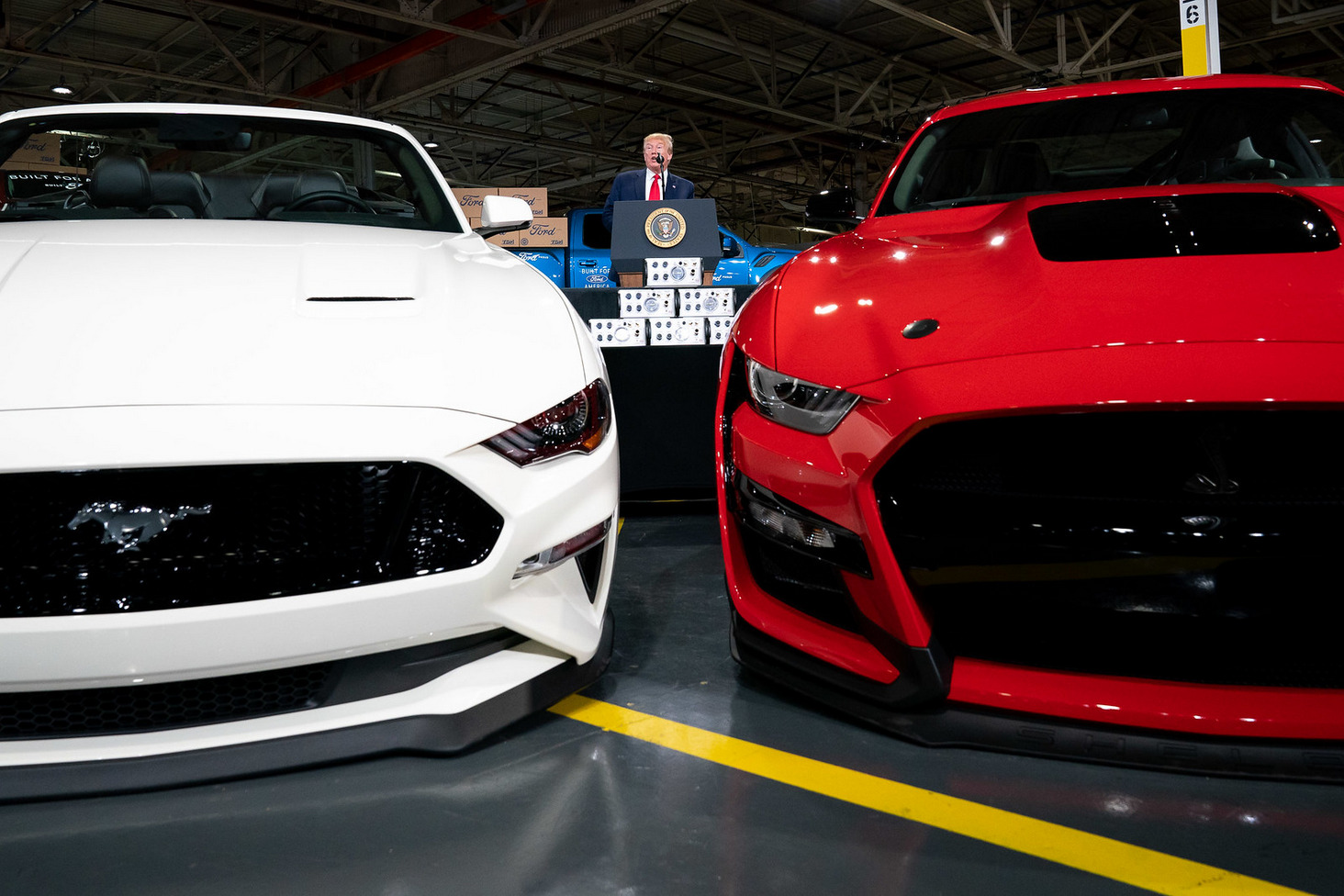
On Wednesday, March 26, Trump announced a new series of economic measures for the automotive sector. In fact, the White House tenant announced the implementation of 25% customs tariffs on all vehicles, trucks and spare parts imported to the United States. With this in mind, any product manufactured outside the United States would be subject to an additional tax of 25%.
Although car imports represent half of the cars sold in the country, with a total of 8 million units, these customs tariffs directly affect the main business partners of the United States, including Canada, Mexico, Germany, Japan and Korea. An announcement that runs the risk of having a strong impact on a sector already very difficult and maintaining pressure on American partners in line with the increase in customs duties on steel and aluminum.
For Canada and Mexico, these cars taxes, added to the increase already applied in customs tariffs, could represent an increase of 50% in their products. A great threat to these two countries, which export more than 75% of production to the United States. Claudia Sheinbaum, president of Mexico, and Mark Carney, the new Canadian prime minister, have announced their intention to meet with Trump as soon as possible to negotiate a differentiated treatment.
Although it will be implemented on April 2, the announcement has already widely disturbed financial markets and has caused concern among employers and governments in different countries. Stellantis’s shares, Mercedes, Porsche and BMW, for example, fell between 4 and 5 percent one hour after the opening of the markets. In addition, the European Association of Automobile Manufacturers (ACEA), which represents the main interests of the industry in European decision -making bodies, said taxes would have a “negative impact on the global automotive sector, including US manufacturers.” Also the German car association (VDA), which is already under pressure, speaks of a “fatal signal for free trade.”
A leap to the commercial war, which raises many contradictions
These new taxes are a reminder of the Trump administration’s desire to try to save US hegemony with the help of protectionist measures. A policy that, however, is not exempt from contradictions. Thus, the increase of these customs taxes, before 2.5%, could involve an increase in the cost of a car imported from $ 3,000 to $ 6,000, according to the US site Cox Automotivespecialist in the sector. An increase that is not exempt from consequences, in a context of the fall of American purchasing power and inflation risks, even recession.
While the application of customs rights – which also increases 25% – to the products of Canada and Mexico was delayed two weeks, this new leap in the commercial war follows numerous postponements of the Trump administration, which has weakened its ability to convince US markets. Symbolizing these contradictions, Elon Musk, Chief of Tesla, had already expressed concern about the probable increase in production costs for US manufacturers.
However, Trump’s protectionism also has the support of certain representatives of the US labor movement. In fact, Shawn Fain, the top leader of the UAW union (Automotríz), had already declared that he was “willing to work” with the US president after his investiture in any issue that aimed to strengthen the American industrial capacity and power. On Wednesday, Shawn greeted Trump’s new measures in a statement: “We congratulate the Trump administration for taking measures to end the free trade disaster that has devastated working class communities for decades.”
A poison for the US working class, but also for the entire working class, which is trapped between nationalist and protectionist speeches, including those of Western imperialists.
European states: between economic pressure and strategic militaristic realignment
Among European countries, Germany seems to be the most affected by this attack. In a highly competitive automobile sector with China, which already registers low sales and is considerably lagging behind the electric vehicle market, the German state would find it thus with very few exits.
In full reorientation of its industry to compensate for its military delay, with the announcement of several hundred billion euros to develop its army, the German race for militarization could take a new turn to save its car industry. Although the will to face or even counterattack these measures has been promoted with nuances by several European governments and by Ursula von der Leyen, Western imperialisms are limited by their own internal contradictions, their desire to military and financially support the Ukrainian front, but also for the development of their own armies.
Although Trump has already threatened to attack harder if such alliances materialize, it is urgent to combat all forms of protectionist rhetoric on both sides of the Atlantic and foster a combat internationalism capable of stopping commercial wars and the march towards open warrism.
This article was originally published in French in Permanent Révolution, part of the International Network The Daily Left.
Source: www.laizquierdadiario.com

